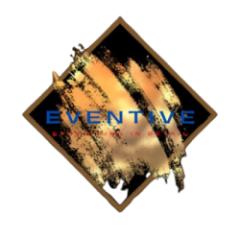The job of an event coordinator isn’t only about flashing lights, canapés, and red carpets; it can also be significant, dynamic, and difficult at times. Events on special occasions require a variety of contractors and preparations, all of which must be coordinated well. To ensure that the cake is delivered or that the honoree can unwind and enjoy the event rather than worrying about the details, someone must work behind the scenes.
In the next moments, we’ll discuss:
- An outline of the job of the event coordinator
- The distinction between an event planner and an event coordinator
- In 2022, a few of the duties of an event organizer
- What constitutes a virtual event’s primary qualities and what that means for organizers
- How a work operating system like Monday.com can make it easier for you to organize, plan, and carry out events smoothly
We’ll begin with the fundamentals first.
An event coordinator is what?
Assuring that everything runs smoothly and with an eye for detail, an event coordinator frees up both hosts and guests to enjoy themselves without having to worry about the details.
The proper execution of all the planning is ensured by an event coordinator. On the day of the event, they work mostly. They deal more with staff scheduling and management than they do with design specifics. They ensure that everything is planned out and moves along as smoothly as they can.
While some event planners focus on working with individuals, others organize massive exhibitions and business-to-business gatherings.
It’s also a wonderful moment to change directions in your career, since the event industry is expected to have job growth of 10% by 2024, compared to an average growth rate of 7% for positions in other industries.
It’s possible that you ran upon the word “event planner” when looking for information about event organizers. Let’s investigate each role and see how they stack up.
What distinguishes event planners from event coordinators?
Even though they are separate professions, many people mistake event coordinators for event planners and vice versa. Here’s the distinction:
All of the specific decisions and selections for an event are made by an event planner. Consider a wedding coordinator who handles catering, tablecloth selection, floral design selection, and other things. To set up everything, they coordinate with all of the contractors beforehand.
To clarify, an event coordinator is primarily concerned with guiding the event’s flow, fixing problems, and making sure all the previously agreed-upon details are met.
Keeping the aforementioned in mind, you’ll probably find a variety of jobs that could use your abilities. To give you an idea of what employers look for, the following is an example of a job description for an events coordinator:
“Overseeing specific tasks associated with the event planning process is the responsibility of an event coordinator. They must meet with suppliers at the site to assist with set-up, gather (pre-arranged) goods and decorations, and collaborate with personnel to make sure the event is completed successfully.
After going over the fundamentals, let’s explore what you’ll need to become an event coordinator.
What abilities and credentials are required of an event coordinator?
There is no set list of prerequisites for beginning an event coordination firm. For this job route, you don’t need to pass a particular exam or obtain a license.
How can you determine if you are the best candidate?
We’ve provided a list of prerequisites below that will increase your chances of success and better prepare you for the experience.
- 2+ years of experience working as an event planner or coordinator
- A post-secondary degree in business, communications, public relations, marketing, or hospitality management, for example
- Professionalism and the capacity to remain composed under duress
- Knowledge of setting up and managing budgets
- A track record of or skill in providing customer service
Additionally, you must possess or be willing to acquire the following skill sets:
- Being able to multitask
- Problem-solving
- Being able to meet deadlines
- Efficient use of time
- Observation of details
- Empathy, active listening, critical thinking, problem-solving, and other soft skills)
- Capabilities in negotiations
You’ll probably use the event organizer talents and credentials mentioned above at some point in your career to handle particular job duties.
What do duties fall under the purview of an event coordinator?
Even if this isn’t a comprehensive list from A to Z, let’s quickly review the tasks of the primary event coordinator:
- Having a discussion with clients about the event and what they want
- Making a proposal for an event that satisfies the client’s needs
- Observing a budget that has been discussed with the client
- Organizing catering, a location, and decorations
- Organizing workers for the event and coordinating with the venue’s staff, a DJ, a religious officiant, etc.
- Continual interaction with the client to inform them of any changes
- Modifying the event in accordance with guest concerns and feedback
- Serving as the primary point of contact for all issues that develop at the event
- During the event, networking and generating new business opportunities
- Administrative tasks that need to be done on a daily basis, such as sending invoices and collecting money
- Juggling several events at once
Coordination of an event and keeping track of every minute detail requires a highly organized person. Fortunately, we don’t have to rush around with a list that will (probably) be lost along the way or memorize a list that is a mile long. There are technologies available that will make maintaining a record of details much simpler and more practical.
Here is a sample breakdown of what an event coordinator’s duties can entail. The best part is that they can always access it whenever they need it. Event planners can always iterate on their to-do list, add notes, tag additional vendors, or assign staff to items. I’ll talk more about the necessary tools later.
We discussed a fundamental list of duties, but your tasks will change depending on the nature of the event. We’ll give you a few instances of situations where you can demonstrate your abilities and roles.
How will you manage events as an event coordinator?
Product launches and music festivals are just a few of the events that an event coordinator can assist with.
You might decide to focus on corporate events or perhaps you’d prefer to specialize in family-oriented events. In either case, you’ll need to have the necessary equipment in your toolbox to complete the task.
With the ongoing pandemic, things have changed significantly over the past few years. Despite the fact that many festive activities now take place online, event planners were and are in high demand. In fact, 73% of event planners online have been successful in running a virtual event.
Given that many events are now virtual, we came up with a list of considerations.
What things need to be considered when organizing online events?
Technology use is essential to the success of a virtual event. With in-person events, the face-to-face connection is incorporated and encouraged through happy hours, networking brunches, Q&As, and other activities; however, with virtual events, it is more important to consider how you’ll foster engagement.
For instance, a conference organizer may pay someone to manage a live polling function or to lead a Q&A session during an online conference. Instead of hiring a caterer, they might choose a platform that hosts events and enables guests to easily divide into smaller groups for more private chats. Perhaps an online quiz or virtual scavenger hunt will be managed by an event coordinator to involve attendees.
Virtual events do, of course, present additional difficulties that call for specialized knowledge. The technological components of the event must be understood by the event coordinator in order for them to troubleshoot as needed. A backup strategy is necessary for an event coordinator in case something goes wrong, like a quiz lagging or a speaker having trouble connecting to the internet. This could entail inviting a different speaker or informing the audience of the proceedings.
Virtual events generally rely on the correct technology to manage all of the big picture and tiny details, as well as to keep attendees involved and operate a successful event. Read on to see how Monday.com can assist you in organizing your most successful event yet, whether it is physical or virtual.
Makes it simpler to coordinate events
We’ve discussed how managing a lot of moving pieces is necessary for event coordination. At Eventive, we understand how important it is to maintain order and knowledge of all the smaller aspects. We made a number of boards to help us perfectly organize an event for this reason.
At Eventive, we can eliminate repetitive operations with the help of our system project management software automation to increase efficiency. So, when a shipment arrives on the day of the event, we can instantly assign someone to manage it, receive instant notifications when duties are finished, and more. We can then pay attention to the tasks that require our attention the most.
A lot of the services we already use, including Eventbrite, Google Calendar, OneDrive or Google Drive, Outlook, and Excel, are all effortlessly integrated with it.
Our system template gives event coordinators more than simply an easier time getting started; it also adds value. Here are a few methods in which this project management template can simplify the task.
- Track each phase of our planning process visually with statuses to visualize the complete process. We can keep track of all of our work with just one glance thanks to this aerial perspective.
- Streamline the RSVP procedure by using our project management template to quickly gather all RSVPs via a form. In this manner, we may maintain track of your guest list, contact those who haven’t yet RSVP’d, or make last-minute changes if more guests show up than you had anticipated.
- Measure success by tracking our most crucial indicators with high-level dashboards and comprehensive reports. In this manner, we can determine whether or not an event went as planned.
Embrace your inner event planner
You maintain events’ schedules and ensure that they are carried out according to plan as an event coordinator. You must learn how to multitask and handle problems like a pro because the majority of the work is done on the day of the event.




